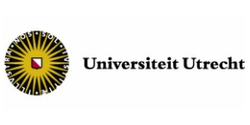PhD Position on Assessing Carbon Sequestration in Blue Ecosystems
Updated: 27 Apr 2024
The C-Blues project on Carbon sequestration in BLUe EcoSystems aims to advance the scientific knowledge on blue carbon ecosystems – seagrasses, tidal marshes, mangroves and macroalgae – in order to promote the role of blue carbon ecosystems in sequestering greenhouse gas emissions and their inclusion into climate mitigation.
Your job
At Utrecht University, we seek a motivated PhD candidate with knowledge and experience related to marine ecology and biogeochemistry to conduct:
- field experiments and sampling of sediment cores, operating autonomous sensors, and perform seawater collection, in nearshore salt marsh, seagrass, and possibly mangrove ecosystems;
- sample processing of collected field data in the lab using geochemical analytical instrumentation such as mass spectrometry of sediment material and seawater analyses (e.g. titrations); and
- to work with international consortium colleagues.
You will work on site at field locations in different European coastal regions for extended periods of time (potentially 1-2 months on site). You will be directly supervised by Cale Miller with secondary supervision support by Jack Middelburg at Utrecht University.
You are expected to publish your results in peer-reviewed academic journals as Open Science contributions. A personalised training programme will be set up, reflecting your training needs and career objectives. About 20% of your time will be dedicated to this training component, which includes training on the job in assisting in the Bachelor’s and Master’s programmes of the department at Utrecht University.
Requirements:
You have experience conducting laboratory and data analyses, are able to work independently and within a team, and display creativity and motivation about the project objectives. Background knowledge in marine biology and carbonate chemistry is a plus. Furthermore, you have:
- a Master’s degree in Marine Ecology, Marine Biogeochemistry, or a related field, ultimately obtained at the start of the position;
- experience with, and ability to perform, field work and laboratory environmental science techniques;
- experience conducting analytical chemical measurements;
- knowledge on blue carbon ecosystems.
Other desired, but not required, skills:
- working with programming software such as Matlab, R or Python;
- general background in statistical methods;
- knowledge on basic physiology of macrophytes;
- knowledge on carbonate chemistry and the carbon cycle;
- good organisational and communication skills;
- excellent skills in writing and speaking English (C1 level);
- an open, critical, and interdisciplinary mindset.
If you already have a PhD degree, unfortunately, we cannot consider you for this position.
Salary Benefits:
We offer:
- a position for one year, with an extension to a total of four years upon a successful assessment, and with the specific intent that it results in a doctorate within this total period;
- a working week of 36 hours and a gross monthly salary between €2,770 and €3,539 in the case of full-time employment (salary scale P under the Collective Labour Agreement for Dutch Universities (CAO NU));
- 8% holiday pay and 8.3% year-end bonus;
- a pension scheme, partially paid parental leave and flexible terms of employment based on the CAO NU.
In addition to the terms of employment laid down in the CAO NU, Utrecht University has a number of schemes and facilities of its own for employees. This includes schemes facilitating professional development, leave schemes and schemes for sports and cultural activities, as well as discounts on software and other IT products. We also offer access to additional employee benefits through our Terms of Employment Options Model. In this way, we encourage our employees to continue to invest in their growth. For more information, please visit Working at Utrecht University.
36 - 40 hours per week
Princetonlaan 8a

